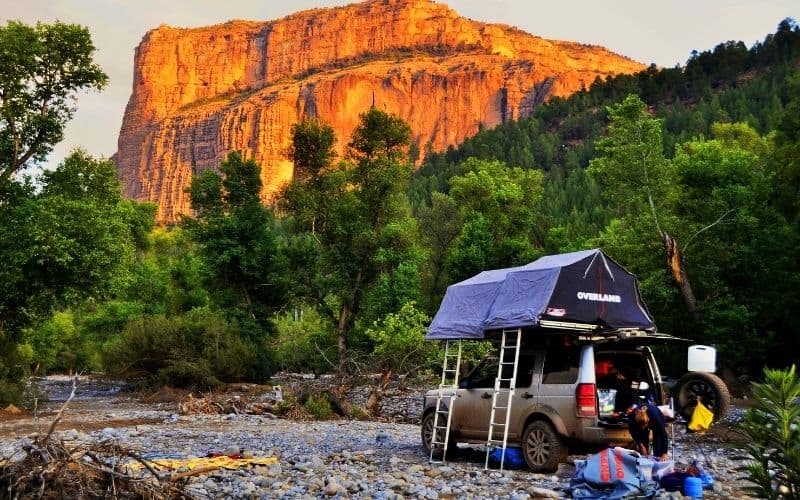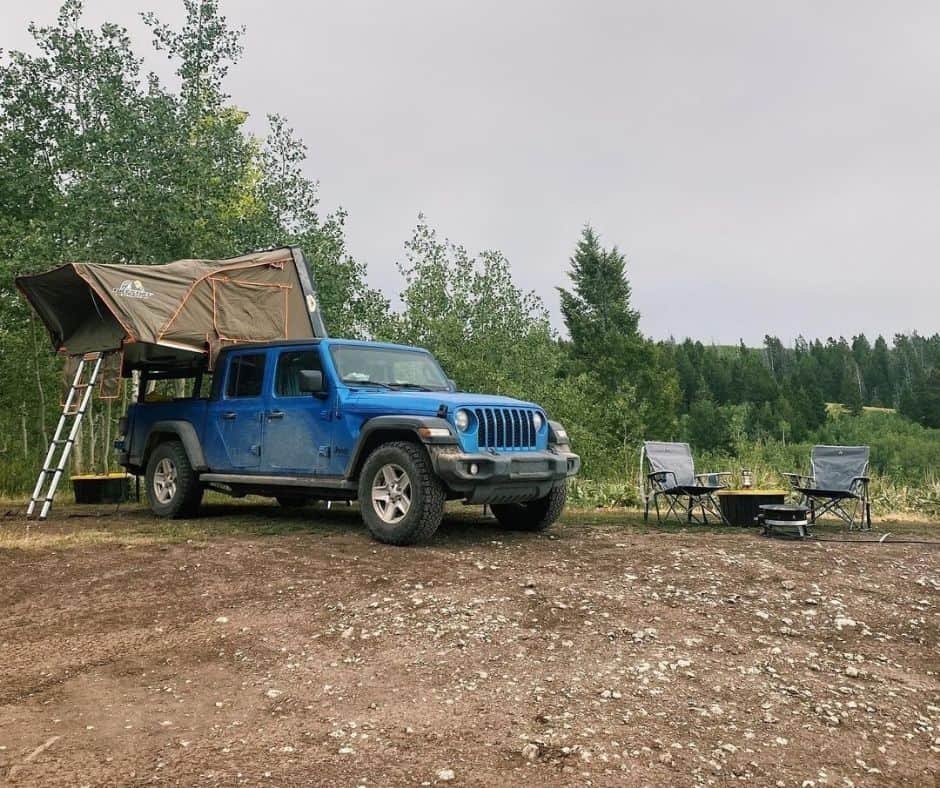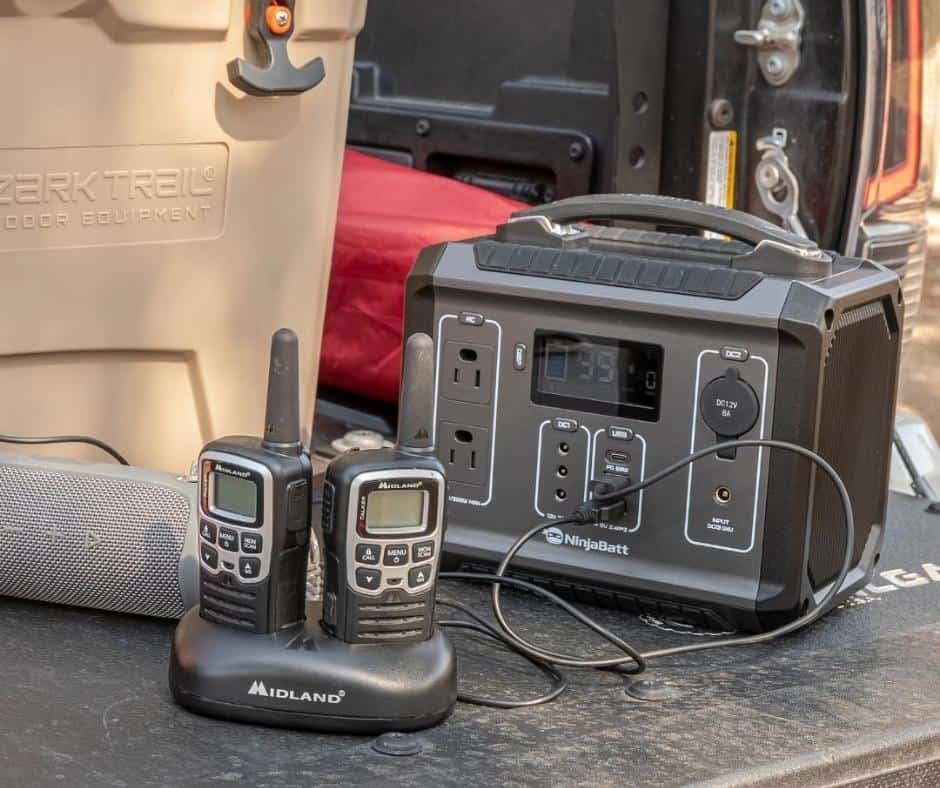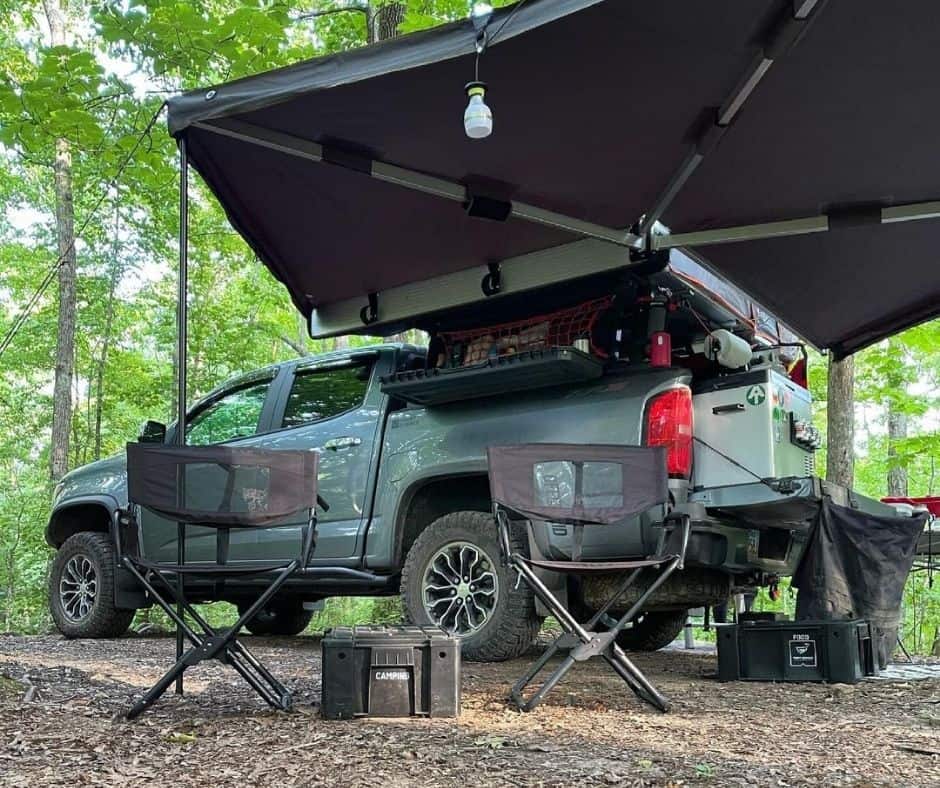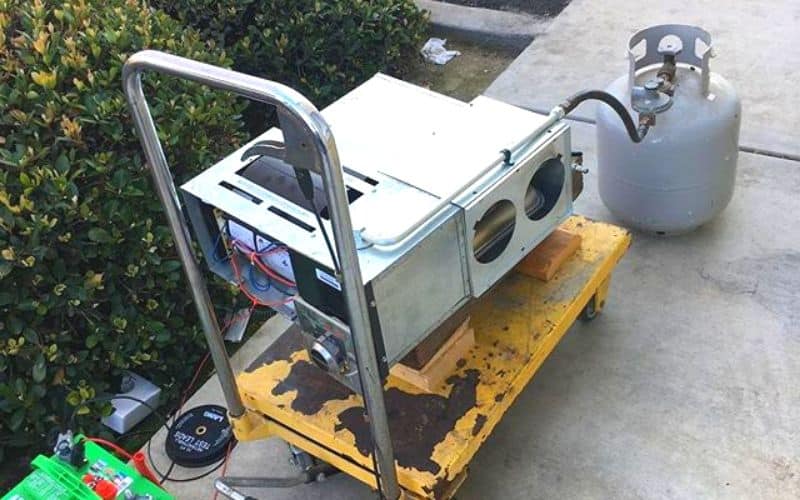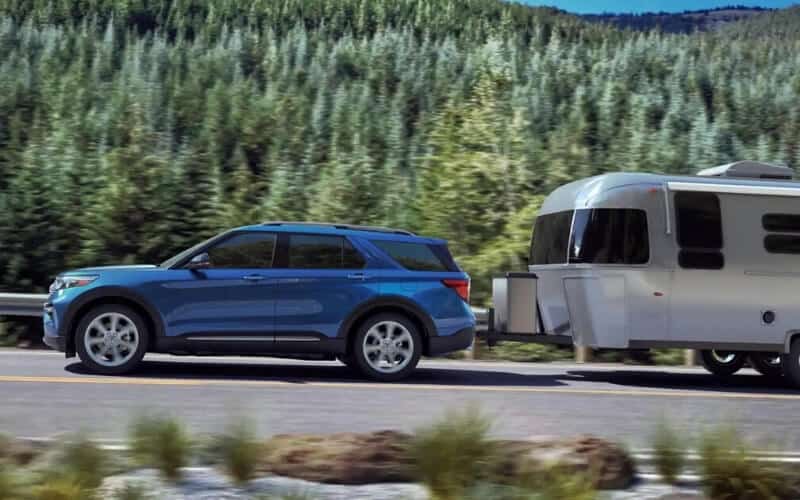Overland travel is far from a new phenomenon. In fact, most early human tribes were overland travelers simply out of necessity.
They followed the big game animals and changed homelands based on the seasons.
Contemporary overlanding is more about being self-sufficient in a vehicle that is built to handle anything.
And it is unmistakable that this style of travel has gained more widespread popularity in recent years.
One reason may be people’s growing craving for self-sufficiency, but it still begs the question:
why overlanding has become so popular right now?
We are determined to get to the bottom of the root causes for this perplexing travel conundrum today.
So hang around with us as we examine the mystery of overland exploration and its growing popularity in the collective consciousness.
So, What Is Overlanding?
Overlanding is a form of vehicle-based off-road, adventure travel that emphasizes self-reliance and places more importance on the journey over the destination.
It is about challenging yourself to handle any situation that may arise on your own, often because it involves going miles away from contemporary automotive services or residential luxuries.
There are generally two different types of overlanders. There are those that do it simply for sport and there are those that live on the road full-time.
For the former, this often involves outfitting a four-wheel-drive vehicle with the latest and greatest in off-road gear and daring to tackle roads that most other motorists would never dream of heading down.
For the latter, it is more about finding a functional day-to-day lifestyle that provides an alternative to the suburban dream that our parents yearned for.
In other words, it is about disconnecting from the mainstream in order to experience nature, challenge your personal limits, and hone wilderness survival skills.
It doesn’t particularly matter which of these two camps you fall into. There is a place in the world for both recreational and full-time overlanders.
The more pertinent question at hand is why are so many people attracted to overlanding right now?
9 Reasons Why “Overlanding” Is Becoming So Popular Right Now
To be fair, most individuals will have very personal reasons for their interest in overland travel.
Still, analyzing social, economic, and even environmental trends can help overlanders and folks in the overland gear industry better understand the current boom in the popularity of this form of self-reliant travel.
Here are a few current trends that could explain the burgeoning popularity of overlanding:
Reason 1: Technology Has Made It Easier
As much as some overland travelers make it a point to disconnect on their travels, improvements in technology have undeniably made overlanding more popular and much easier for people willing to travel to more remote destinations.
For those that love to keep their electronics fully charged while they travel, there are now loads of options to help you do so.
Improvements in cellular technology have also vastly increased the likelihood that you can remain connected from your campsites.
Portable power stations allow you to keep all of your devices fully charged.
Cell phone signal boosters boost your receptivity in remote locations. Streaming media services no longer require RVs to plug into a cable in order to stay up-to-date on their favorite shows.
Solar technology can also recharge batteries and power stations when you aren’t able to plug into shore power.
Overall, vast improvements in technology and camping equipment have played a major role in the increased popularity of overland adventures.
Reason 2: A Global Pandemic Has Driven Motivation for Outdoor Adventure
The Covid-19 pandemic has disrupted our lives in ways that none of us could ever have imagined.
It forced us inside our homes and, sometimes uncomfortably, inside our hearts and minds.
For some, the response has been a need to swing back in the other direction and set out on the road full-time.
Tired of being trapped inside homes and small apartments, folks who could afford to do it traded in their smaller sedans for backroads-ready overland vehicles.
The pandemic has also caused some people to take a financial hit in unanticipated areas.
For them, overlanding has become popular because it actually winds up being a more affordable lifestyle once you make the initial investments.
Reason 3: Disposable Income Has Made Overland Gear More Affordable
While many have taken a financial hit in recent times, that has not necessarily been the case across the board.
Some industries have seen relative booms that have put more disposable income into the pockets of their CEOs and employees than ever.
One major reason that overlanding has become so popular recently is that more people have more disposable income to invest in 4×4 vehicles and overland-specific adventure gear.
If you couple that additional disposable income with people being able to travel again, many overland gear brands have seen the demand for their offerings way outpace the supply.
Many rooftop tent companies, for example, have back orders that won’t be fulfilled for more than six months.
When people have more disposable income, they naturally spend it on recreation. In some cases, that becomes local outings to waterparks and bowling alleys.
In others, it results in people finally having the ability to travel in a manner they had always imagined.
Reason 4: Generational Differences Motivate Different Types of Overlanders
There are also some important generational differences that may explain the uptick in the popularity of overland travel. Younger generations are more likely to spend their disposable income on experiences while the Boomer generation has more interest in traveling in their retirement years than previous generations.
These differences have driven overlanding brands to deliver products that cater to both generations.
On the younger side, there seems to be more interest in overlanding adventures to especially remote places that other campers simply can’t access.
Studies have also suggested that the younger generation is also more likely to challenge themselves and push their limits when they travel.
This willingness feeds right into the inherently self-reliant nature of overland journeys.
Additionally, however, there are a large number of retired Baby Boomers that are also getting into the world of overlanding.
As you might imagine, they are looking for adventure vehicles with different features than their younger counterparts.
These older retirees prefer rigs like the diesel EarthCruiser because of their long-distance range while maintaining certain creature comforts.
According to one overlander from San Francisco, “Extreme off-roading, that’s not what we’re looking for. We’re looking to go around the world.”
Reason 5: International Travel Restrictions Have Increased Domestic Travel
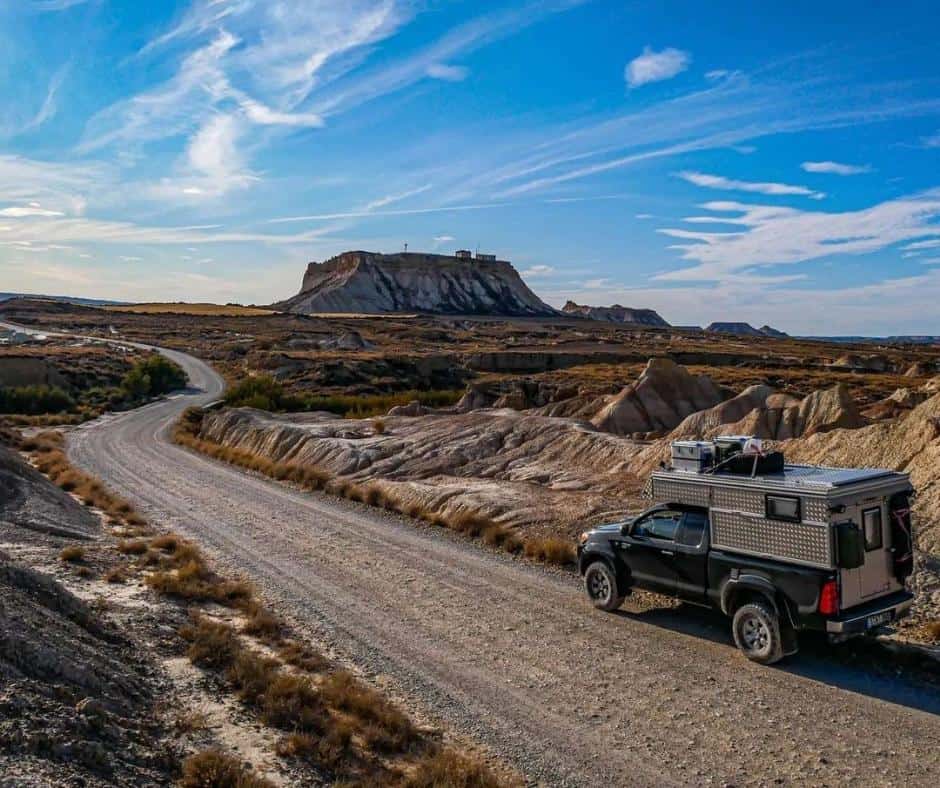
There are so many different types of travel to choose from out there. Some people prefer to explore domestically while others would rather hop on a plane and spend a week in a foreign destination.
Recently, however, international travel restrictions have made the latter much more difficult, if not entirely impossible for large swaths of the population.
Confronted with the choice between shifting to domestic travel or not traveling at all, the choice was clear for many.
The rise in popularity of overlanding may be attributed to the simple fact that many people were not able to travel internationally. As a result, they turned to overlanding as an alternative method to explore more of their domestic area.
This can also explain why manufacturers of overland truck campers and other overland accessories are often sold out or taking orders that will not be completed for a minimum of 3-6 months.
Reason 6: Social Media Makes It Appear More Accessible
Those increases in technology that we mentioned earlier have made it possible for overland adventurers to share their journeys like never before. Naturally, they are going to inspire others who are currently living a different lifestyle to give overlanding a try, which naturally increases the popularity of overland adventures.
This reason is a slippery slope because social media is not always an accurate depiction of what overlanding is really like.
However, when you are sitting on your couch and looking at an overland traveler’s “highlight reel,” it is hard not to feel a little envious.
According to Chris Wood, the national sales director for American Expedition Vehicles, “All the amazing photography and videos keep feeding the fire. People new to the sport have been captivated by the idea of getting away but having comfort and conveniences too.”
Over time, we can build up an insatiable hankering to try something that we see on social media.
Unfortunately, that can remain the case even if we do not necessarily have the skills or experience to do so safely.
Reason 7: Remote Work Opportunities Make It More Feasible For Longer Periods

In part because of enhanced remote access, people are now able to work their jobs from remote locations. This was unheard of even 10 years ago and it has made long-term overlanding much more desirable and realistic than it has ever been.
On this topic, Wood relates a quick story. “I have a friend who built out a Ram truck with a satellite dish and solar panels and he works from the road.
I have to admit there have been times I wonder if I could pull that off.”
Why lock yourself into a mortgage for the next 30 years when your job will allow you to travel, live, and experienced different places?
Many overland travelers will upgrade to an unlimited mobile plan and work from their hot spot wherever they have service. When they are traveling, there is no need to pay for WiFi at a physical address.
If they are really strapped for data, there is also an abundance of coffee shops, public libraries, and breweries that will allow remote workers to log on and work for a few hours at a time.
It is naturally expected that you purchase a few items while you are there to support the business.
Generally, however, remote workers can actually save money by not paying for WiFi at a residential address.
Even paying for a coffee and a bagel at a coffee shop a few times a week can still be more affordable than many monthly residential internet plans.
Reason 8: Better Trucks Mean Less Chance of Roadside Breakdowns
Improvements in engine capabilities and innovations in advanced traction systems have also produced more rugged trucks.
These trucks can handle roads that aren’t so well-maintained and are less likely to get stuck than previous models.
These advancements in truck capabilities have inspired increased confidence amongst overlanders and further driven the popularity of this form of adventure travel.
Getting stuck and having to wait hours for roadside assistance, once you get service to make a call, can put a real wrench (pun definitely intended!) in your overlanding plans.
The Jeep Wrangler, Toyota Tacoma, and Toyota 4Runner are three of the most popular truck models for overlanding in the U.S. According to Jeremy Headlee, the marketing director for the suspension company Icon Vehicle Dynamics:
“So many new vehicles will do 90 percent of the trails that we see — especially if they come with an electronic locking differential.
Being able to offer something that improves upon that ups the ante on what you can do.”
Reason 9: More Rugged Adventure Trailers Provide More Comfortable Living and Sleeping Spaces
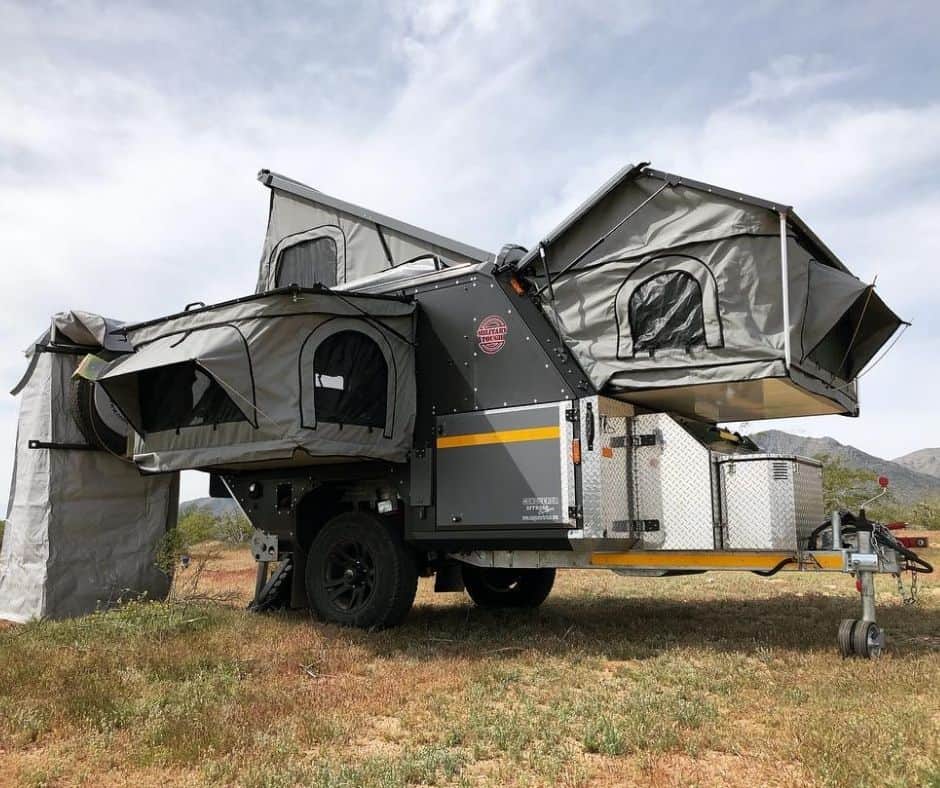
Overland trailer manufacturers have been innovating right along with the trucks that pull them.
Off-road trailers like the Conqueror UEV 440 now allow travelers to enjoy a much more comfortable setup when they get to camp.
In the early days of overland travel in the U.S. people were mostly camping in tents or sleeping in the backs of their Model-T ford trucks.
Now, you can get a trailer with a pop-up tent, slide-out kitchen, propane tank, and plenty of storage for your recreation equipment.
Overlanding hasn’t always been the most comfortable or luxurious form of travel. With the increasingly luxurious nature of today’s adventure trailers, overlanding has become more popular amongst groups that would have previously never dreamed of “roughing it” on the road.
Furthermore, there are rooftop tent companies like Tepui that will put a tent on just about any vehicle.
“If you just pull off the road and pop a tent that makes camping more accessible, easy and fun because you never know where you’re going to go,” says Wood.
Conclusion
We live in a time in history when it feels like so much of the world has already been mapped.
When I was a kid, I used to imagine being a pirate or an explorer setting sail to discover new lands that my family had only dreamed of.
In response to that feeling of the world being mapped, overlanding is a way to experience hidden treasures that many other campers and travelers can’t access.
More importantly, however, it is about challenging yourself to be self-sufficient and finding satisfaction in the journey itself.
It is our sincere hope that this article has helped to clarify some of your questions about this popular trend of overlanding and why so many people are talking about it right now.
Whether you get into overlanding or another form of adventure travel, we wish you the happiest and healthiest of journeys in the months and years to come!

